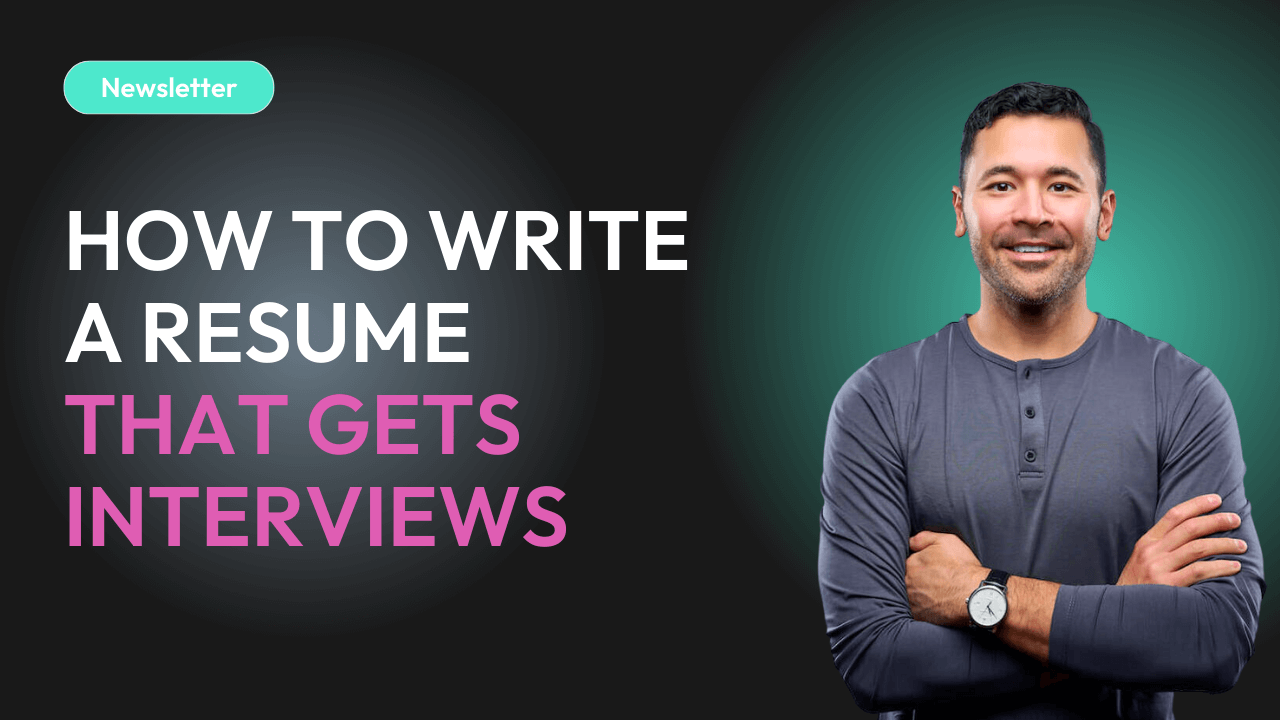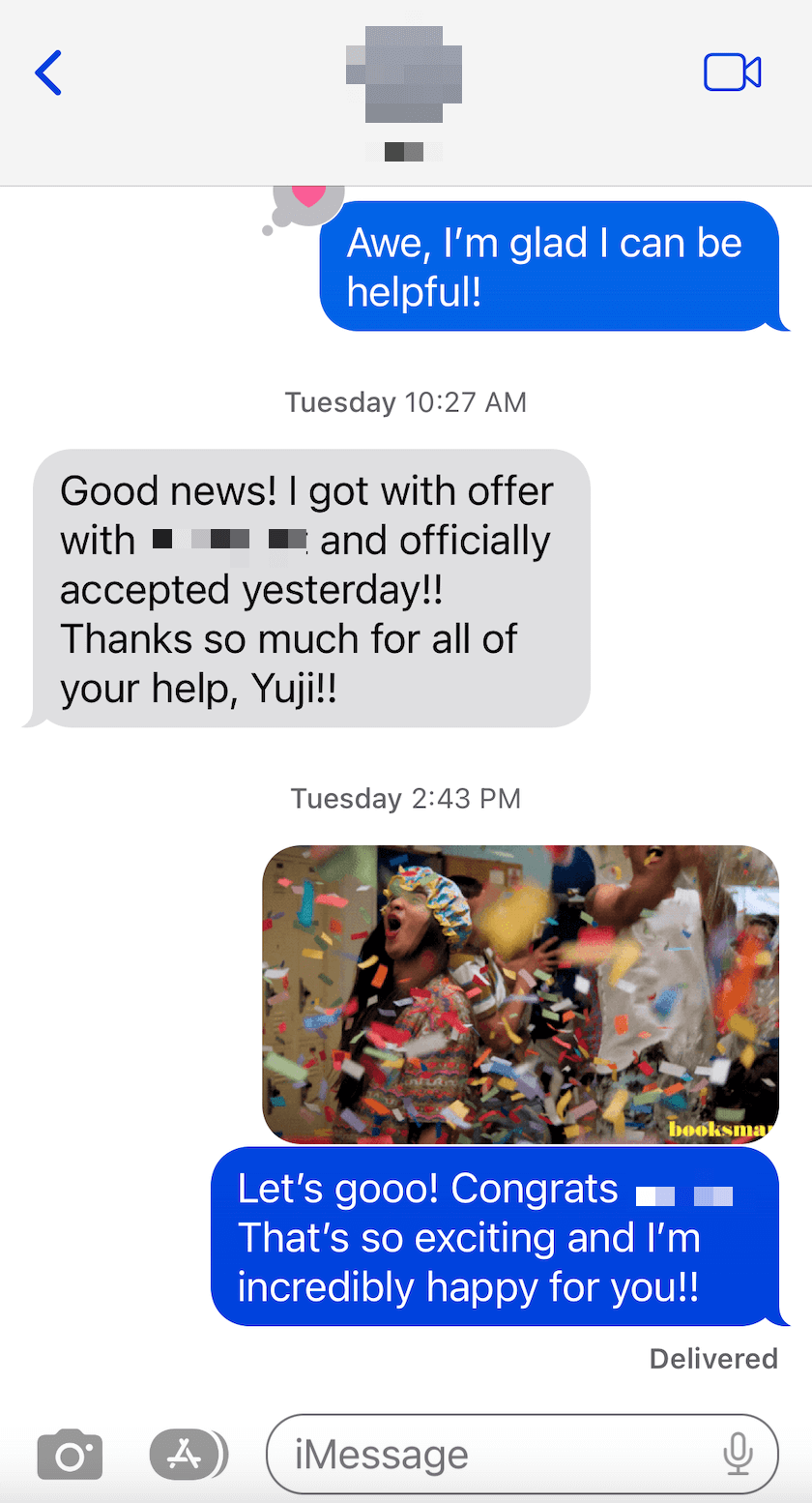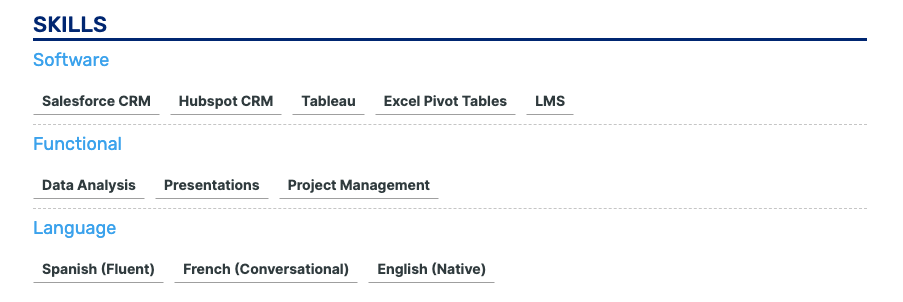
How to write a resume that gets interviews
Sep 02, 2023Read time: 5 minutes
It's been a good week! People are getting job offers and interviews! As hiring ramps up, I look forward to helping more folks land great roles.

MAIN TOPIC 🎯
How to write a resume that gets interviews
There is a dizzying amount of online resources and advice about resume writing, yet every week, I still review resumes that miss the mark.
I’ve reviewed thousands of resumes in my career.
The reality is that…
70% of resumes are bad - skipped over 😩
25% are good - worth a closer look 🤔
5% are great - get called for an interview 🤩
Resumes are a small part of your job search strategy but are still necessary.
Having a good resume isn’t always enough to get you an interview, but having a bad resume ensures you will NOT get one. Getting your resume right will help you get more interviews.
Let’s dive and fix your resume!
(Assuming you’ve determined a specific role to target. If not, see this past article on the importance of focusing on a target role.)
What’s the purpose of a resume?
- To quickly convince a recruiter or hiring manager to interview you.
What does an effective resume include?
- A skimmable snapshot of your relevant experience, skills, education, etc., that illustrates your fit for your target job
- Demonstrates the value you can bring to the role/team/company
Where do most resumes fall short?
- Tries to cover too much or is irrelevant
- Your resume is not a comprehensive review of your career or life story. It needs to be hyper-relevant to your target role. If you’re targeting a project manager position, almost everything on your resume should be relevant to that role. Review every sentence on your resume - if it’s not relevant to the role, company, or industry - remove it.
- For example, a software engineer's resume will look much different than a sales development representative's.
- Lists basic and generic skills
- Yes, “Communication” is an essential skill for every job, but it doesn’t belong on a resume. Why? Because it’s basic, and the hiring team is going to evaluate your excellent communication through interviews and emails with you rather than take your word for having good “communication” because it’s listed on your resume. Also, exclude skills like “Microsoft Word” and “Google Docs.” Those skills are expected and aren’t helping you stand out. The more fluffy soft skills you have listed, the harder it is to skim through and find the relevant hard skills they’re looking for.
- Inconsistent, hard-to-read formatting
- The goal is to make your resume as easy to read as possible while still delivering impactful content. You need it to be skimmable and allow the reader to find the information they’re looking for quickly.
- Grammar/spelling mistakes
- Any mistakes on your resume are a killer. Many jobs require high attention to detail, and errors on your resume can cost you an interview.
- Too vague and generic
- Vague, fluffy statements don’t help demonstrate your value to the employer. You want to include specifics such as what the result/impact, quantify how much, how you demonstrate a skill, etc. (see an example in the Experience section below)
Disclaimer: The suggestions in this article are based on my experience reviewing many resumes as a hiring manager and from writing resumes for clients who have landed them jobs. That said, individual recruiters, hiring managers, and mentors may have different opinions that work well.
How do you structure your resume?
- Header (Contact + Headline)
- Summary (Highlights)
- Experience
- Skills
- Certifications
- Education
Header (Contact + Headline)
Recruiters and hiring managers are looking for keywords. Some of the most important keywords are job titles. To make that as obvious as possible, include your job title (or target job title) as your headline. This makes it very clear to the reader that you have skills relevant to the target role and that they should keep reading.

Summary (Highlights)
Include 3-4 bullets that summarize your relevant experience and high-level value that you provide.
Include a relevant section title (target role). Include supporting statements that illustrate specific results, projects, and relevant experience.

Bonus: Add a personalized statement with the Company’s name at the top beginning. They’ll pick up on their name and appreciate the subtle personalization.

Experience
If you have previous experience, make sure your job titles stand out more than the company name (unless the company is well-known and highly relevant to your target company). If you don’t have previous experience, tailor your previous job titles to include keywords for your target role (while still accurately representing your role).
Keep these bullets concise - ideally, most of them are two rows or less.
Share what you did, and more importantly, how well you did it and the impact.

Example bullets:
👎 Assisted with customer inquiries and provided support.
🤩 Resolved an average of 50 customer inquiries daily, maintaining a 95% customer satisfaction rate through effective communication and problem-solving skills.
Skills
- Prioritize relevant hard skills first
- Exclude fluffy soft skills (e.g. communication, problem-solving, leadership, etc.)
- Expand on skills where possible (“Salesforce Integrations / Administration” vs “Salesforce”)
- Include skills you’re actively learning, even if you’re still a beginner!
- Group skills to make them easier to find (e.g. Software, Functional, Language)

Note: If you’re a career changer, you might consider moving your Skills section above your Experience section to highlight your relevant skills over your experience.
Certifications
Show you’re actively developing skills (“in progress” is okay to include). Highlight the most relevant 3-5 (if you have many).

Education
This should be the last section on your resume, and keep it simple because, in most cases, your work experience > education (unless you’re a recent college grad without much work experience or if you have a highly specialized degree that is required for the position). Don’t include your high school - that’s never relevant.

Summary
There you have it. A clean, concise, and impactful resume. It won’t guarantee you’ll get a specific job, but it will absolutely get you more interviews.
If your resume could use a revamp, we'll review it for you and give you tailored feedback.
> Check out the Resume Revamp <
We can review your LinkedIn Profile too!
If you could use help landing your next AE or SE role, we can help! Apply to work with us 1-on-1. We'll personally reach out to chat about how we can help you accelerate your job search.
